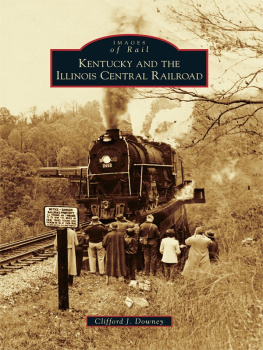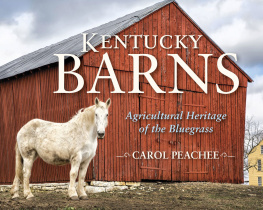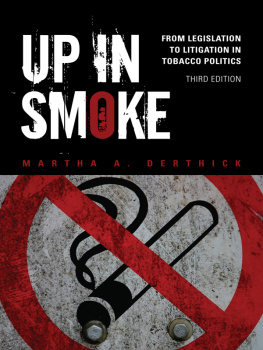
TOBACCO AND KENTUCKY
THE KENTUCKY BICENTENNIAL BOOKSHELF
SPONSOBED BY
Kentucky Historical Events Celebration Commission
Kentucky Federation of Womens Clubs
AND CONTRIBUTING SPONSORS
American Federal Savings & Loan Association
Armco Steel Corporation, Ashland Works
A. Arnold & Son Transfer & Storage Co., Inc.
Ashland Oil, Inc. / Begley Drug Company
J. Winston Coleman, Jr.
Convenient Industries of America, Inc.
Corning Glass Works Foundation / Mrs. Clora Correll
The Courier-Journal and The Louisville Times
Covington Trust & Banking Company
Mr. and Mrs. George P. Crounse / George E. Evans, Jr.
Farmers Bank & Capital Trust Company
Fisher-Price Toys, Murray
Mary Pauline Fox, M.D., in honor of Chloe Gifford
Oscar Hornsby Inc.
Office Products Division IBM Corporation
Jerrys Restaurants / Robert B. Jewell
Lee S. Jones / Kentuckiana Girl Scout Council
Kentucky Bankers Association
Kentucky Coal Association, Inc.
The Kentucky Jockey Club, Inc.
The Lexington Womans Club
Lincoln Income Life Insurance Company
Lorillard A Division of Loews Theatres, Inc.
Metropolitan Womans Club of Lexington
Betty Haggin Molloy
Mutual Federal Savings & Loan Association
National Industries, Inc. / Rand McNally & Company
Philip Morris, Incorporated / Mrs. Victor Sams
Shell Oil Company, Louisville
South Central Bell Telephone Company
Southern Belle Dairy Co. Inc.
Standard Oil Company (Kentucky)
Standard Printing Co., H. M. Kessler, President
State Bank & Trust Company, Richmond
Thomas Industries Inc. / Tip Top Coal Co., Inc.
Mary L. Wiss, M.D.
Younger Womans Club of St. Matthews
Tobacco and
Kentucky
W. F. AXTON
Illustrations by the Author
Research for The Kentucky Bicentennial Bookshelf is assisted by
a grant from the National Endowment for the Humanities. Views
expressed in the Bookshelf do not necessarily represent those of the
Endowment.
Copyright 1975 by The University Press of Kentucky
Paperback edition 2009
The University Press of Kentucky
Scholarly publisher for the Commonwealth,
serving Bellarmine University, Berea College, Centre
College of Kentucky, Eastern Kentucky University,
The Filson Historical Society, Georgetown College,
Kentucky Historical Society, Kentucky State University,
Morehead State University, Murray State University,
Northern Kentucky University, Transylvania University,
University of Kentucky, University of Louisville,
and Western Kentucky University.
All rights reserved.
Editorial and Sales Offices. The University Press of Kentucky
663 South Limestone Street, Lexington, Kentucky 405084008
www.kentuckypress.com
Cataloging-in-Publication Data is available from
the Library of Congress.
ISBN 9780-81319340-3 (pbk: acid-free paper)
This book is printed on acid-free recycled paper meeting
the requirements of the American National Standard
for Permanence in Paper for Printed Library Materials.
Manufactured in the United States of America.
| Member of the Association of
American University Presses |
Contents
Illustrations follow page 132
Preface
SURELY THE least likely candidate to essay the first full-length history of Kentuckys tobacco, informal as this is, must be the author of the present volume, a professor of Victorian literature at the University of Louisville. Aside from an undergraduate degree in history, I have but one qualification for this taskmy father, Edwin Dymond Axton, Sr., and his brother Wood were founders of what became in the 1930s the last major tobacco company owned and managed by Kentuckians, the Axton-Fisher Tobacco Company.
Thus I grew up with the rich aroma of tobacco often in my nostrils and with the lore of leaf constantly in my ears. My father was a gentle man of scholarly turn of mind, a splendid raconteur, and a great natural teacher; and at his knee I imbibed the information upon which the broad outlines of this study are based. Were he alive today, he would be a hundred years old; and he would have been the most appropriate person to have written this book. Acting as his surrogate, I dedicate this volume to his memory, in the sure and certain knowledge that, in his great rocking chair up yonder, he is reading these pages and, what is more, fulminating against the errors committed by that ignorant young puppy, their author.
These sentimental associations extend to include in their embrace an industrial giant, Philip Morris Incorporated, which purchased Axton-Fisher over a generation ago and now operates its much-expanded plant in Louisville with great success. In recognition of these bonds, Philip Morris generously agreed to underwrite the bulk of the publication costs of this volume, after the manuscript was completed and without asking to exercise any editorial control over its contents. Such a gratifying gesture in token of a shared sense of historical continuity is all the more poignant because of my longstanding friendship with James C. Bowling, a senior officer of Philip Morris, an alumnus of the University of Louisville, and the younger brother of an old wartime comrade, Van Dorn Bowling, Jr. It does seem to be a small world after all, and sometimes, as on this occasion, a reassuringly human one.
It is quite impossible to acknowledge all the other debts I owe to the dozens of colleagues, friends, and interested citizens who have assisted me in the preparation of this text; but special thanks belong to my research assistants, Ivol Parker and Katherine Auerbach; to Anne Owen and Alice Cole, who typed the manuscript from my longhand sheafs of legal cap; and to the librarians of a half-dozen different collections at the University of Louisville, who were unfailingly generous with their help.
Notable extracurricular assistance came from the following: my brother, Edwin Dymond Axton, Jr., an inexhaustible source of documents, oral history, and martinis; Kenny Kremer, proprietor of Kremers Smoke Shoppe, an indispensable Louisville institution, and philosopher extraordinaire to tobacco users; two trusting souls who lent me, sight unseen, important original documents, Robert Hobson, statistician for the Tennessee Crop Reporting Service, and John E. Gallaher, Greater Lexington Chamber of Commerce; and C. R. Corum, who let me use his manuscript article Tobacco, the Winged Pipe, and the Sioux Religion.
A unique accolade belongs to my wife, Anne Millard Axton, who had to listen to me talk these pages through.












